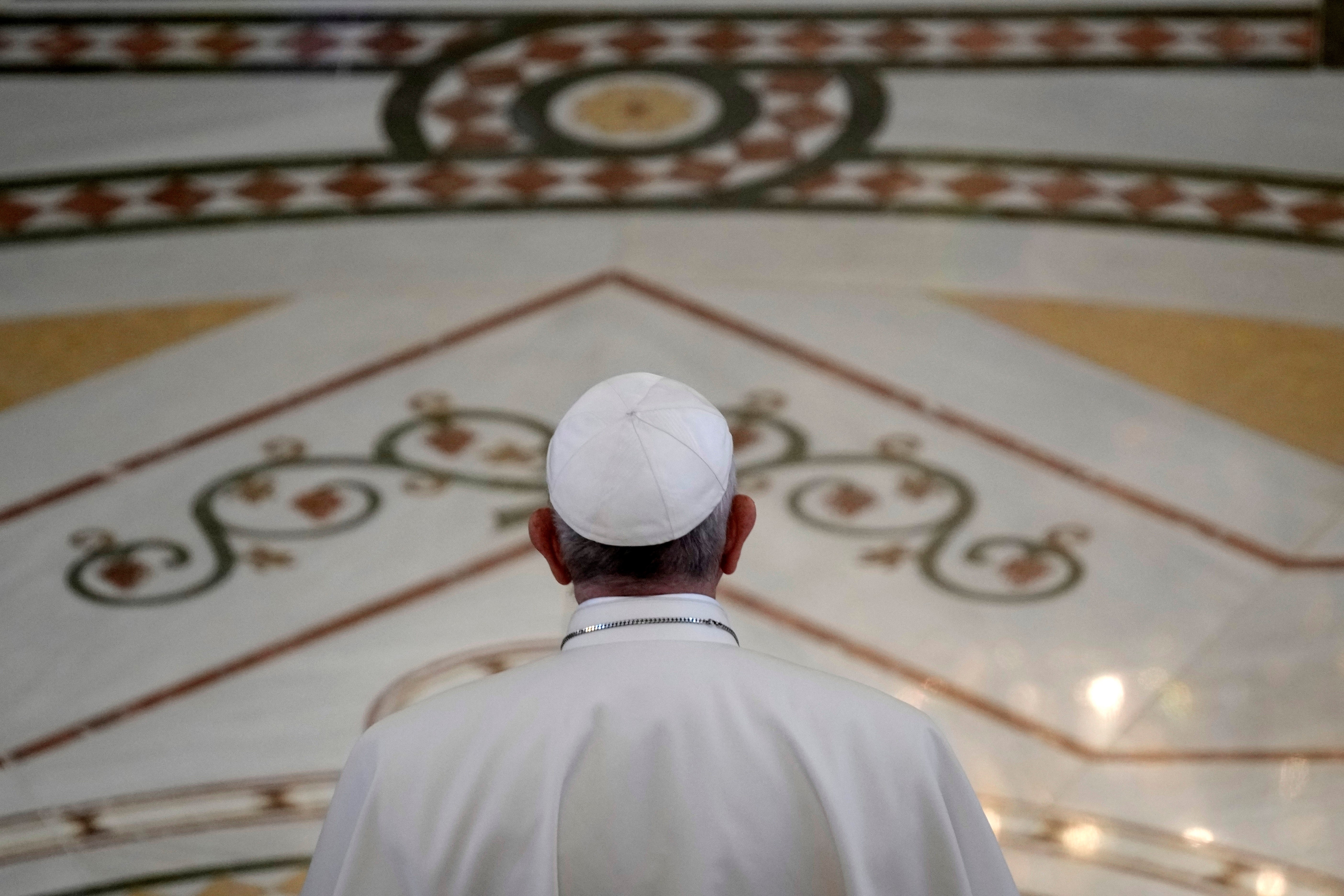In Greece, Pope to seek deeper ties with eastern churches
Pope Francis heads to Greece for the second leg of his trip to the region with meetings in Athens aimed at bolstering recently-mended ties between the Vatican and Orthodox churches

Your support helps us to tell the story
From reproductive rights to climate change to Big Tech, The Independent is on the ground when the story is developing. Whether it's investigating the financials of Elon Musk's pro-Trump PAC or producing our latest documentary, 'The A Word', which shines a light on the American women fighting for reproductive rights, we know how important it is to parse out the facts from the messaging.
At such a critical moment in US history, we need reporters on the ground. Your donation allows us to keep sending journalists to speak to both sides of the story.
The Independent is trusted by Americans across the entire political spectrum. And unlike many other quality news outlets, we choose not to lock Americans out of our reporting and analysis with paywalls. We believe quality journalism should be available to everyone, paid for by those who can afford it.
Your support makes all the difference.Pope Francis heads to Greece Saturday for the second leg of his trip to the region, with meetings in Athens aimed at bolstering recently-mended ties between the Vatican and Orthodox churches.
Francis’ five-day visit to predominantly Orthodox Cyprus and Greece is largely focused on the plight of migrants as Europe hardens its border control policies.
Talks on Saturday will turn to an emerging alliance between the eastern and western branches of Christianity to face major global problems including climate change.
In 2001, Pope John Paul II became the first Catholic leader to visit Greece in more than 1,200 years. Francis has accelerated inter-faith initiatives, as the two churches attempt to shift from centuries of competition and mistrust toward collaboration.
In Athens, Francis will meet the leader of Greece’s Orthodox Church, Archbishop Ieronymos, as well as with the country’s political leadership, Prime Minister Kyriakos Mitsotakis and President Katerina Sakellaropoulou.
At his meeting with the Orthodox church leadership in Cyprus Friday, Francis expressed regret over the “centuries of division” between the two churches.
Francis invited Orthodox Christian and other religious leaders to the Vatican in October to sign a climate declaration. Supporters of greater Vatican-Orthodox cooperation argue that it could assist beleaguered Christian communities in the Middle East and North Africa.
Orthodox Churches are also seeking alliances as they are involved in a deepening dispute over the independence of the Ukrainian church which was historically governed by the Russian Orthodox Church.
“I think the presence of the pope in Greece and Cyprus signals a return to the normal relationship that we should have ... so that we can move toward what is most important of all: the unity of the Christian world,” Ioannis Panagiotopoulos, an associate professor of divinity and church history at Athens University, told The Associated Press.
“So this trip is very significant and it means we can have a real discussion about the major issues, like migration.”
Francis will meet with members of Greece’s small Catholic community and on Sunday will return to the Aegean Sea island of Lesbos, where he visited five years ago to meet with migrants at a detention camp there. He brought a dozen home with him aboard the papal plane.
Up to 4,000 police officers will be on duty in Athens for the pope’s visit, which ends Monday. ___ Follow Gatopoulos at https://twitter.com/dgatopoulos